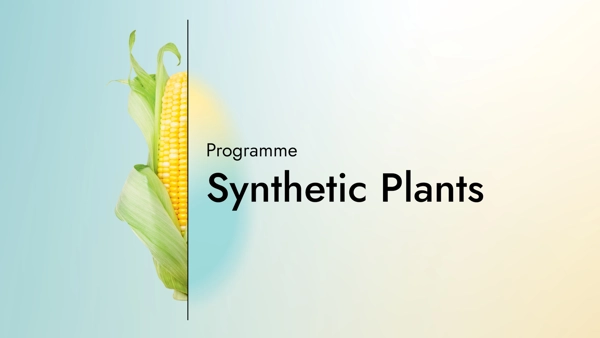A Bigger Conversation is participating an initiative to embed ethics and public perspectives into the governance of plant synthetic biology.
A Bigger Conversation is pleased to be collaborating with the University of Edinburgh, The Nuffield Council on Bioethics and others on a new £1.8m project from the Advanced Research and Invention Agency (ARIA) as part of its Synthetic Plants programme, which aims to take a holistic approach to innovation, integrating technical work with social and ethical research as part of ARIA’s commitment to social responsibility.
The project, led by Dr Robert Smith, a Lecturer Science and Technology Studies at SPS, University of Edinburgh, is one of two funded by ARIA to examine the social, political and ethical dimensions of the technical work.
It will work to co-design governance frameworks for synthetic plant genomics alongside plant breeders, farmers and citizens to explore priorities for plant enhancement, sustainability, and risk diversification.
It also aims to create an infrastructure for public discussion about synthetic biology in plants using documentary filmmaking, photography and biological art to prompt debate around the country. The findings from this project will provide the evidence needed to guide national and international policy.
Commenting on the project, Dr Smith says: “Our ability to engineer plants with synthetic biology continues to expand. We know from past experience that the leaps will be unexpected, but we can prepare now to address the complexities they will raise. Who should benefit from plant synthetic biology? Which traits should be pursued, and which should we avoid? Can scientists build plants that enable a more sustainable future? Who should decide? I’m excited to be given the chance to develop a proactive approach with Angie, the other ARIA technical creators, policymakers, and members of the public to think about these questions from the outset.”
Pat Thomas, Director at A Bigger Conversation, says “We are pleased to be part of a project that recognises that science doesn’t operate in a vacuum. Embedding ethics and public perspectives from the start is vital if we are to ensure that synthetic plant biology serves the wider public good, not just technical or commercial interests. A Bigger Conversation brings deep experience in making space for diverse, sometimes challenging, views and values – something this field urgently needs.”

